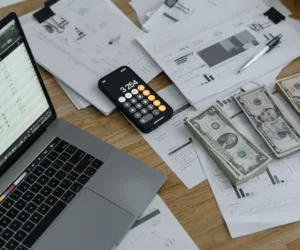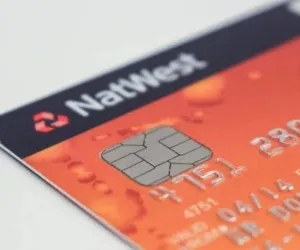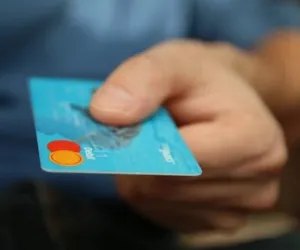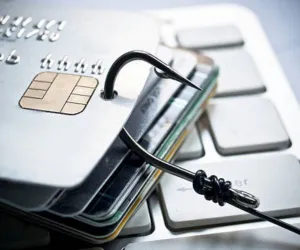
Credit Repair:
How to “Fix” Your Credit Independently

Credit Repair
How to “Fix” Your Credit Independently
FIX YOUR CREDIT NOW!
Improving your credit isn't an instant process. Negative but accurate information, like missed payments or collection accounts, typically stays on your credit report for seven to 10 years. Nonetheless, there are actions you can initiate to begin constructing a more favorable credit history and enhance your credit scores gradually.

Check Your Credit Report
To understand your credit situation, check your credit report and obtain your free credit score. Identify and address any errors by disputing them with the credit agency and contacting the reporting lender directly.

Improve Your Payment History
Late payments, bankruptcies, and collections damage credit scores for 7 to 10 years. Scores are influenced by debt size and timing of missed payments. Bringing accounts current and paying on time improves scores.

Know Your Credit Utilization Ratio
It's calculated by dividing the total amount of your revolving debt, such as credit card balances, by your total available credit limit, then multiplied by 100 to obtain a percentage. For instance, if you have $6,000 in credit card balances and a total credit limit of $60,000 across all your credit cards, your utilization ratio would be 10%.

Consider How Many Credit Accounts You Have
Before closing a credit card account, weigh the impact on your credit history. Maintaining an open account, even if paid off and unused, can be beneficial. However, if leaving accounts open risks increased spending and debt, closing them may be preferable. Evaluate your unique financial situation carefully to decide the best course of action.

Think About Your Credit History
Before closing a credit card account, think about your credit history. Keeping a credit card open, even if you've paid off the balance and don't plan to use it anymore, can be beneficial. However, if leaving accounts open could tempt you into more spending and debt, closing them may be the better option. Since everyone's financial situation is different, carefully evaluate yours to decide the best approach.

Be Wary of New Credit
Opening multiple credit accounts within a short timeframe can make you seem risky to lenders and, consequently, harm your credit scores. Before obtaining a loan or opening a new credit card account, think about the potential impact on your credit.
FIX YOUR CREDIT NOW!
Improving your credit isn't an instant process. Negative but accurate information, like missed payments or collection accounts, typically stays on your credit report for seven to 10 years. Nonetheless, there are actions you can initiate to begin constructing a more favorable credit history and enhance your credit scores gradually.

Check Your Credit Report
To understand your credit situation, check your credit report and obtain your free credit score. Identify and address any errors by disputing them with the credit agency and contacting the reporting lender directly.

Improve Your Payment History
Late payments, bankruptcies, and collections damage credit scores for 7 to 10 years. Scores are influenced by debt size and timing of missed payments. Bringing accounts current and paying on time improves scores.

Know Your Credit Utilization Ratio
It's calculated by dividing the total amount of your revolving debt, such as credit card balances, by your total available credit limit, then multiplied by 100 to obtain a percentage. For instance, if you have $6,000 in credit card balances and a total credit limit of $60,000 across all your credit cards, your utilization ratio would be 10%.

Consider How Many Credit Accounts You Have
Before closing a credit card account, weigh the impact on your credit history. Maintaining an open account, even if paid off and unused, can be beneficial. However, if leaving accounts open risks increased spending and debt, closing them may be preferable. Evaluate your unique financial situation carefully to decide the best course of action.

Think About Your Credit History
Before closing a credit card account, think about your credit history. Keeping a credit card open, even if you've paid off the balance and don't plan to use it anymore, can be beneficial. However, if leaving accounts open could tempt you into more spending and debt, closing them may be the better option. Since everyone's financial situation is different, carefully evaluate yours to decide the best approach.

Be Wary of New Credit
Opening multiple credit accounts within a short timeframe can make you seem risky to lenders and, consequently, harm your credit scores. Before obtaining a loan or opening a new credit card account, think about the potential impact on your credit.
How to Get Extra Help With Your Credit and Debt
How to Get Extra Help With Your Credit and Debt
How to Get Extra Help With Your Credit and Debt
If your debt is manageable, consider consolidating it through either a personal loan or a balance transfer credit card.
Debt consolidation loans may offer lower interest rates and reduced monthly payments, provided you meet eligibility criteria and adhere to the terms of the program. With a balance transfer card, you can often take advantage of an introductory 0% APR offer, allowing you to pay down the balance without accruing interest. However, it's crucial to avoid adding new charges to the original card after transferring the balance.
If your debt feels overwhelming and your credit isn't sufficient to qualify for a balance transfer card or a low-interest personal loan, seeking assistance from a reputable credit counseling agency may be beneficial. Many of these agencies are nonprofit and offer free consultations with tailored advice for your specific situation.
If your debt is manageable, consider consolidating it through either a personal loan or a balance transfer credit card.
Debt consolidation loans may offer lower interest rates and reduced monthly payments, provided you meet eligibility criteria and adhere to the terms of the program. With a balance transfer card, you can often take advantage of an introductory 0% APR offer, allowing you to pay down the balance without accruing interest. However, it's crucial to avoid adding new charges to the original card after transferring the balance.
If your debt feels overwhelming and your credit isn't sufficient to qualify for a balance transfer card or a low-interest personal loan, seeking assistance from a reputable credit counseling agency may be beneficial. Many of these agencies are nonprofit and offer free consultations with tailored advice for your specific situation.



Terms and Conditions
Copyright © 2023 Freedom LiveStream All rights reserved.


